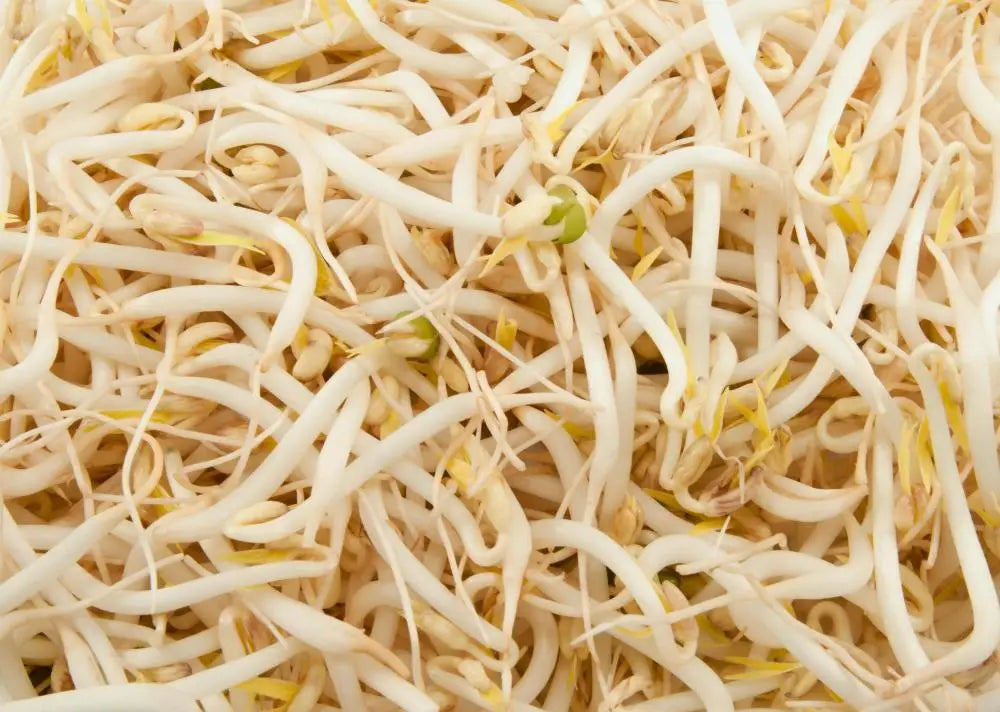The Nutritional Benefits of Mung Bean Sprouts
Delicious Mung Bean Sprouts Juice & Smoothie Recipe
Mung Bean
:max_bytes(150000):strip_icc():format(webp)/GettyImages-1140849002-b9ce11af2ff74164b0e293dfbc0c47b2.jpg)
Bean sprouts are the short, pale green or white shoots that sprout from a wide variety of beans which interestingly contain a higher content of vitamins, minerals, amino acids and other nutrients than the beans from which they sprout!
Sprouts can be derived from seeds and nuts as well as beans. All sprouts are easy to grow at home. Interestingly, while alfalfa are the most popular sprouts, they are lower in nutritional value than other sprouts!
In the West, bean sprouts are commonly consumed fresh in salads, sandwiches, and more recently, juices and smoothies. We associate sprouts in particular with Eastern foods where they have been a part of the cuisine and used for medicinal purposes for millennia. But mung bean sprouts, especially, have long been a part of Indian, South American and African diets.
Ingredients
-
1 mango, chunked without the seed or skin
-
1 cup (or handful) fresh mung bean sprouts
-
1/2 medium english cucumber, with the skin
-
1 cup fresh coconut, chunked
-
1 to 2 cups coconut water or milk (for a smoothie)
Steps to Make It
-
Gather the ingredients.
-
Combine mango, mung bean sprouts, cucumber, and coconut in a blender. Blend on high until smooth and completely combined.
-
If making a smoothie, add the coconut water or milk, then blend on high until smoothie. Adjust consistency with additional liquid of choice, if desired.
-
Taste and adjust flavor with additional fruit or sweetener, if desired. Pour into glasses and serve immediately.
Benefits & Research
- Bean sprouts are extremely low in calories, rich in protein and nearly fat free with no cholesterol or sodium. They are filled with nutritional enzymes, vitamins and minerals such as calcium, and provide an excellent source for energy-boosting carbohydrates.
- They are also a valuable source of the antioxidant vitamin C, and are high in folate, depending upon which sprouts you eat. Folate is necessary for the production of DNA, red blood cells and amino acids. Thus, folate is essential to the prevention of anemia and birth defects. It’s especially critical to women who are pregnant. One cup of sprouts delivers 16% to 30% of the RDA of folate, depending on what sprouts you eat!1
- It’s important to note that not all sprouts are created equal! Soy and mung bean sprouts are the most nutritious.
- Studies concluded that sprouts have an anti-inflammatory effect and may reduce the risk of colon cancer.2 Other research is looking at preliminary results that sprouts decrease blood pressure, fight diabetes, lower the risk of heart disease and prevent allergies.






Leave a comment